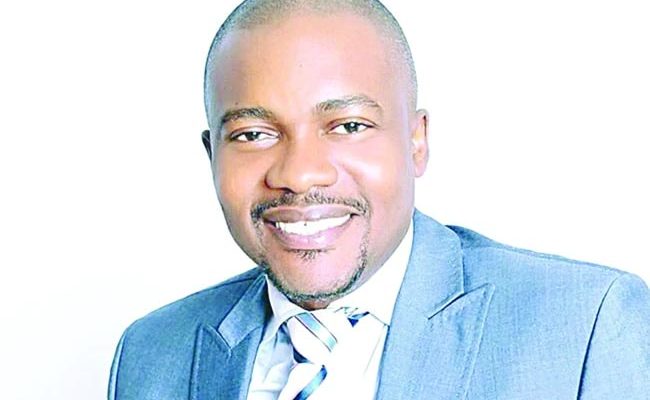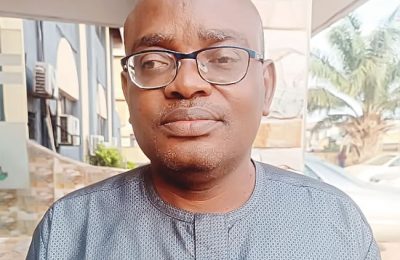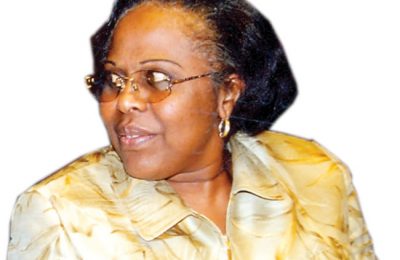Comrade Peter Esele is a former two-term president of the Trade Union Congress (TUC). He has also served as president of the Petroleum and Natural Gas Senior Staff Association of Nigeria (PENGASSAN) and as member of the now rested Subsidy Re-investment Programme Committee (SURE-P) of the federal government. He speaks with IMOLEAYO OYEDEYI on the 50 per cent transport subsidy initiated by the Tinubu government.
NIGERIANS have in recent times been grappling with severe cash crunch. The situation became intense during the week, fetching the federal government wide knocks, especially from the labour unions, which have threatened to embark on a mass protest if the situation is not addressed. What is your take on the current issue?

I think the government can truly handle the situation. But it is one thing to even have the cash, it is another thing on what the cash can buy for you during this critical period. This is because we have over the years gone through a cashless society, but now that it is coming back and becoming tough, I believe the government can go out and ensure that the situation is taken care of. My main worry for the average Nigerian is Christmas at what cost? If the minimum wage at the moment is N30,000 and a bag of rice right now is N60,000, while a half bag is N30,000, which means the minimum wage is the exact equivalent of a half bag of rice. So what about other condiments to make the food? This makes the current situation tough for the average Nigerian worker, especially as inflation is skyrocketing.
I seriously think this is not the best time to be a worker or even a Nigerian, because the purchasing power of the average worker has drastically taken a dip. I remember that as of the time the minimum wage was N18,000, a dollar was about N150. But now that a dollar is about N1000, the minimum wage is simply around 30 dollars a month. So if you situate that, you will see that though in terms of figure, the N30,000 is higher than the N18,000, in terms of value, the N18,000 minimum wage is higher than the N30,000 that is being paid now. So my advice to the government is to ameliorate this hardship on the people. That is why I have always asked the government to put subsidies for Nigerians in key areas like transportation. This is because all over the world, the transport system is heavily subsidized, as it is transportation that stimulates the economy and its growth. It helps the movement of goods and even the people. For instance, if someone is going to work, but is only spending half of what he is supposed to spend on transportation because it has been subsidized, this will no doubt increase the person’s purchasing power to survive. So a subsidy for transportation is needed. Aside from this, there is also the need for subsidies for health care and agriculture. If you check vividly, you will see that farmers in Europe and America are well taken care of. As such, they never farm at a loss. But it is different here in Nigeria. A friend of mine, who is a poultry farmer, once had 3,000 crates of eggs, but there was no buyer for them. That was when the Buhari government came up with the wrong policy of colouring the naira note. Because the man had no buyer, he had to sell at a loss. But in other parts of the world, that is not allowed. The government will make sure it buys off all the eggs for children to feed in schools. So we need subsidies for agriculture, transportation, and healthcare for the Nigerian workers to survive in this current tough economy.
The Tinubu administration has just emplaced a short-term subsidy on inter-state transportation for about five million Nigerians for ease of movement during the festive season. But the new measure is already receiving mixed reactions from Nigerians. While some stakeholders and unions, including the National Union of Teachers (NUT), have welcomed the idea, others, especially the Nigerian Labour Congress (NLC) have kicked against it, saying it is utterly misplaced and will breed more corruption. What do you have to say about this?

The measure is a good move, but it is not well-tailored and highly planned. To me, I see the move as a half-full glass rather than a half-empty glass. The fact is the government will simply make mistakes from it. But I believe they will learn from their mistakes and improve on the initiative. This is because it is better to do something than do nothing at all. And when you do something and make mistakes, you are expected to learn from it and improve on what you have done initially. That is how a society grows. I know that there are going to be hiccups along the way, but I will not condemn what the government has done. As I said, the initiative is not detailed enough, but the government needs to have a starting point and not just wait for the perfect time to move. I know people have argued that the idea is wrong because most interstate buses in the country are privately owned and that even the duration of the measure is short, but at least, it will be on record that we have started something.
On the argument that it will give room for corruption, the question is even if the government did not spend the money on the idea; won’t the money go to someone’s pocket at the end of the day? It is said that it is better to do something and make mistakes than do nothing and make no mistake because when you make mistakes, you are learning. But if you don’t do anything, you are not learning at all. I agree that what the government has done is not sustainable in the long term, but it is a good beginning. They can also learn from it, make mistakes, and improve on it next time.
However, considering the many criticisms raised by Nigerians for the measure, shouldn’t the government have effectively planned it out before coming out with the announcement?
Yes, but if the government says they want to come out with a good plan before announcing it, don’t forget that these are politicians and then, waiting to have a very good plan before swinging into action may take longer than expected. You see, one of the things we often do in this part of the world is to condemn everything. Let me take you to the United States. When Obama Care came up, being a health policy, it was condemned by a lot of Americans. There were a lot of mistakes and errors when it started. But as I am talking to you now, there are more than 10 million Americans that are now using the Obama Care. In fact, during the last election, many people voted for the Democrats because of the policy. So, let’s see this new federal government transportation policy as a starting point. Is it perfect? No. Is it sustainable right now? No. But can it be improved upon? Yes. When you do something new, you are bound to make new mistakes. But is only when they repeat old mistakes that I will be very disappointed with the current government.
Beyond the transportation policy, what kind of Christmas do you think the average Nigerian will be having given the country’s current hyperinflation?
The Christmas we are going to have is a bleak one and my advice to Nigerians is let’s do everything to survive with the belief that this hardship shall surely pass. It is a difficult time. But it’s the same all over the world as inflation is skyrocketing everywhere and affecting everyone. But ours is further compounded by very negative government policies, not just from Tinubu’s administration, because it stemmed from the Buhari government. We are grappling with a cash crunch right now, but it began during the Buhari administration, and it’s the effect we are still going through now. So my advice is let’s not give up hope, let’s keep hoping to survive.
However, since the naira scarcity resurfaced, the Central Bank of Nigeria (CBN) has been promising to address it. The year will end in a few days and we are yet to see any change. Is it that they cannot do it or what do you think is the problem?
I don’t think they really cannot do it. What I think is happening is people hoarding cash. So I expect the CBN to sanction some banks, because the last time that we had this issue, it was the banks that were holding onto cash. It was initially an allegation and I made my investigation. I reached out to some banks’ managing directors, and they also said it was just not them, but the CBN was also hoarding the same cash. And that it was what the apex bank gave them that they were releasing to Nigerians. But since the issue has resurfaced now, I expect Cardoso’s administration to find out who exactly is hoarding the cash this time. Is it the banks or Nigerians? Or is it even the CBN itself that is not releasing enough cash to the banks? If the government can genuinely and effectively answer these questions, you will see that the cash crunch will be a thing of the past.
Following the harsh economic challenges posed by the removal of the fuel subsidy, Tinubu’s government promised to pay Nigerian workers about N35,000 monthly for some months. But the government reportedly paid the N35,000 palliative only in September, and since then, there has been no show. As some Nigerian workers have complained about this, what is your take on it, and do you think the N35,000 monthly payment can cushion the hardship the low minimum wage couldn’t address?
Well, I leave that to Labour leaders, as I don’t know what they are negotiating. This is because when the government announced the N35,000 monthly payment, it looked more like a bad deal as it was not systemic and process-driven. As such, it was never going to last. So what I expect the NLC and the Trade Union Congress (TUC) to do is to sit down with the federal government again and find a lasting solution. If our minimum wage is going to be N65,000, let’s know it is 65,000, which then means that is what the government will be paying. To me, what the president did is just like putting a plaster on an injury; it won’t address the exact cause and cure for the injury. So, I want both parties to sit again and genuinely agree on what will be the real minimum wage, so that the Nigerian workers will know what they are expecting. The N35,000 payment was done by fiat. And a negotiation is never done by fiat. It should be an agreement between the employer and the employees.
READ ALSO FROM NIGERIAN TRIBUNE







